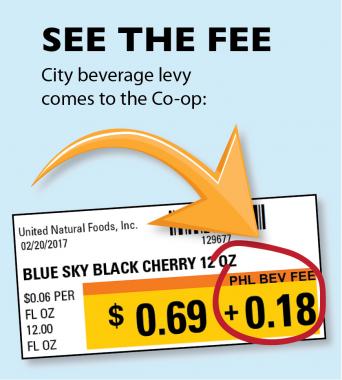
Suggestion Book
Greetings and thanks for writing. As usual, suggestions and responses may have been edited for brevity, clarity and/or comedy. In addition, no idea, concept, issue, remark, phrase, description of event, word or word string should be taken seriously. This also applies to the previous sentence.
Last month I made up a suggestion and response about asbestos water. (Editor’s note: Norman occasionally makes things up. See disclaimer above.) When I wrote it I thought it was mildly funny, but then I heard from some Ambler residents that they didn’t find it humorous. They said they are proud of their history and are concerned with the health of their community and found my joke offensive. That was my mistake, for which I apologize. In retrospect, and now knowing a little bit more about Ambler’s history and asbestos (it’s an ongoing issue), I realized that people’s long-term and severe health problems due to a product of what was once a thriving industry that both gainfully employed tens of thousands of people but also horribly sickened many is not an appropriate place to look for humor, especially if the effects are still with us.
In other news, Philly’s sweetened beverage tax that went into effect Jan 1. The tax is supposed to be paid by the distributor, i.e., the people who deliver the product to retailers like us, and we’ve been waiting to see how our main supplier was going to handle it. We recently got the answer and I would sum it up as “not well.”
While the tax has some gray areas — Is Silk creamer a beverage? Is kombucha sweetened? — we’ve seen reports that both suppliers and retailers are misidentifying what items are subject to the tax. Many 100% juice beverages have been classed as subject to the tax. (They aren’t.) I’ve even seen club soda listed (ingredients: water, minerals, carbonation). We recently concluded our best bet is to identify what items are subject to the tax ourselves so we can check if our suppliers have handled them accurately, and we’ll also consider paying the tax ourselves, which is allowed, so we’re sure we’re paying the correct amount.
The good, or bad, news for shoppers is we will pass through most of the tax, so in the end customers will pay most of this tax, which is good if you can afford it, like where the money is going (expanded pre-K, improving rec centers) and trust the city to spend the money wisely, but bad if you can’t afford it or don’t think it’s the government’s role to act in this way. When I was first learning about the tax, I didn’t think affordability would be an issue since most of the items affected were said to be non-essential sugary beverages. But the way the law ended up being worded and the way some beverages are formulated and labeled means the tax also hits things like some soy, almond and hemp milks and similar items you wouldn’t have thought of as unhealthy, empty-calorie beverages.
More details as we work them out.
suggestions and responses:
s: “Please go back to stocking regular Santa Cruz applesauce in glass (not apple apricot). Field Day is not as good and we got a moldy one. Not pleased, even with refund. Which raises the question: quality control?”
r: (Norman) Sorry about your Field Day experience; this is the first complaint we’ve had about this item. For pre-packaged items like applesauce in jars, we depend on the manufacturer and vendor for quality control, unless there is a quality problem that is visible to our staff. Note we also have Beechwood applesauce, from a York County orchard we deal with directly. Beechwood apples are not organic but are grown using Integrated Pest Management. We’ll consider bringing Santa Cruz back too.
s: “I’d like to know periodically (monthly perhaps) what is available currently in bulk departments. Could this info be emailed, perhaps included with sales info? For me, it’s the Mt. Airy store I’m interested in, where I make “special” trips via two buses, vs. the Chestnut Hill store where I regularly shop and that’s more easily reached. Being carless, I’d find it helpful to know what is available in advance, to bring along my reusable containers and to count on finding particular items. What happens often is I end up getting bulk at Whole Foods, while I’d much prefer to get all possible at the Co-op.”
r: (Norman) This is an interesting idea, and it’s possible we could implement it to a certain extent. We are going to be offering Instacart online ordering and delivery as a convenience for Weavers Way shoppers in the next few months; as part of that we have to produce an online list daily of all our products, with prices, which could include bulk. While the products published are supposed be in stock at the time we send the data to Instacart, it’s just a “snapshot,” so if someone in the store just bought the last two pounds of spelt flour, the item won’t be available despite showing on the website. Our buyers try to have adequate inventory of most items, especially popular ones, but sometimes there is an unexpected run on an item, or our supplier shorts us, or some other reason, and the item may not be available in the store. Stay tuned for our progress with Instacart.
s: “There is so much waste outside Mt. Airy — cardboard, trash, compost. Is there a way to cut down?”
r: (Norman) Good question. Our stores, like most groceries, generate a lot of waste. There is so much packaging in our food system, and lots of resources go into creating packaging to begin with and then dealing with the resulting waste, even if some of it does end up getting recycled. Of course, buying bulk helps, but even bulk items come to us in single-use containers — typically cardboard boxes lined with plastic. We know we have room for improvement in our internal management of waste and are working with a Zero Waste consultant to see if we can improve internal practices.
s: “Would like to see some reminders posted to let people know that placing their basket in the checkout line while continuing to shop is a bad practice. Perhaps new and non-members are unaware. It happens a lot. Reminders could be placed on the counters under the chips and in the Shuttle. Thanks for considering.”
r: (Rick MA) That’s an issue. We’ll work on that! Thanks.
s: “Thank you WW staff for your friendly and calm attitudes.”
r: (Rick) On behalf of the staff — thank YOU!
s: If the paleo diet, otherwise known as the caveman diet, builds upon the idea that human beings should be eating like our ancestors did during the Paleolithic Era, I’m wondering if we should go a step further and eat like our ancestors’ ancestors, — you know, the Primate Diet?”
r: (Norman) The primate diet might be on the right path as it kind of “trumps” the World Health Organization’s recommendations to eat five servings a day of fruits and vegetables. Primates eat more like 50 servings a day, although it’s mainly fruit, not vegetables. Many primates also eat insects and foliage. Due to our cooperative relationship with Friends of the Wissahickon, we’ve arranged for a Weavers Way member benefit that basically makes the Wissahickon a self-serve cafeteria for followers of the Primate Diet. Feel free to eat any leaves and insects you come across there, but remember to present your Co-op membership card first to whatever bug you eat so they know they have just become eligible prey.
s: “Can we do anything about the soda tax? I think it’s unfair.”
r: (Norman) Yep. Since we came out in support of the sweetened-beverage tax, we realized it’s a little slanted against sweet beverages, so in the interest of fairness, equality, yin and yang, we’re asking Mayor Kenney for a tax on sour beverages.

